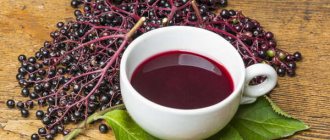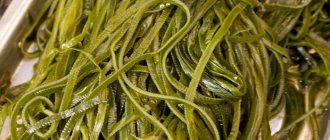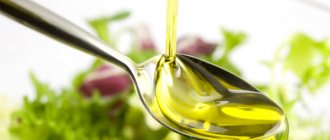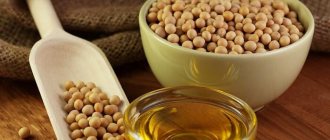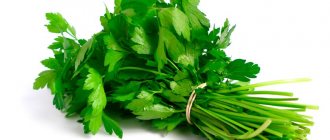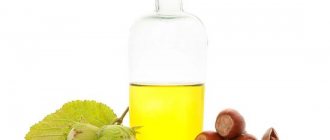Savoy cabbage is a vegetable crop that is part of the Cruciferous family of the cabbage genus. The wild ancestor has not yet been identified, although there is a theory that the first wild species were found in Colchis, in the territory of modern Georgia. Peasants from the Italian county of Savoy were the first to cultivate the Savoy variety, which is why the crop received its name. The heads are similar to white cabbage, but the ruffled, dark green leaves do not have rough veins and are milder in taste and sweeter. In its raw form, the variety is widely used by culinary specialists in the USA and Western Europe.
Composition and calorie content of savoy cabbage
The energy value of Savoy cabbage is low, so it can be safely introduced into the diet when losing weight or constantly monitoring its changes.
The calorie content of savoy cabbage per 100 g of product is 28.2 kcal, of which:
- Proteins - 1.2 g;
- Fats - 0.1 g;
- Carbohydrates - 6 g;
- Dietary fiber - 0.5 g;
- Water - 90 g;
- Ash - 0.1 g.
Vitamins per 100 g:
- Vitamin A, RE - 3.3333 mcg;
- Beta Carotene - 0.02 mg;
- Vitamin B1, thiamine - 0.04 mg;
- Vitamin B2, riboflavin - 0.05 mg;
- Vitamin B6, pyridoxine - 0.2 mg;
- Vitamin B9, folate - 18.5 mcg;
- Vitamin C, ascorbic acid - 5 mg;
- Vitamin RR, NE - 0.7992 mg;
- Niacin - 0.6 mg.
Macroelements per 100 g:
- Potassium, K - 238 mg;
- Calcium, Ca - 15 mg;
- Magnesium, Mg - 9 mg;
- Sodium, Na - 20 mg;
- Sulfur, S - 15 mg;
- Phosphorus, Ph - 34 mg;
- Chlorine, Cl - 47 mg.
Microelements per 100 g:
- Aluminum, Al - 815 μg;
- Boron, B - 100 μg;
- Iron, Fe - 0.4 mg;
- Iodine, I - 2 μg;
- Cobalt, Co - 1 μg;
- Manganese, Mn - 0.21 mg;
- Copper, Cu - 135 μg;
- Molybdenum, Mo - 10 μg;
- Fluorine, F - 14 μg;
- Zinc, Zn - 0.29 mg;
Digestible carbohydrates per 100 g of product:
- Starch and dextrins - 0.5 g;
- Mono- and disaccharides (sugars) - 5 g.
Savoy cabbage contains antioxidants, phytoncides, acids and amino acid complexes.
The main beneficial properties of Savoy cabbage are due to the following substances:
- Ascorbic acid improves immunity, increases iron absorption, and participates in the body's redox processes.
- Potassium ensures water-salt metabolism, stabilizes heart rhythm, and prevents the development of tachycardia.
- Molybdenum accelerates metabolic processes, stimulates the synthesis of enzymes that ensure the removal of purines, sulfur-containing amino acids and pyrimidines.
- Aluminum is involved in the construction of bone and connective tissue, the formation of epithelium, and inhibits age-related changes.
Savoy cabbage juice improves immunity and is successfully used to combat obesity.
Savoy cabbage is relatively high in protein and low in dietary fiber, so it is recommended to include it in the diet during increased exercise.
Chemical composition of savoy cabbage and benefits for the body
The plant contains vitamins C, B, E, PP, fiber, as well as macro- and microelements essential for the human body. At the same time, the combinations of these components in the vegetable are characterized by the ability to be easily absorbed by the body, positively affecting internal organs and systems:
- For example, vitamin B6 in tandem with calcium has a beneficial effect on the functioning of the heart muscle.
- Vitamin C in a protein-bound state is characterized by pronounced antitumor properties, which persist even after heat treatment.
- Methylmethionine heals ulcers of the gastrointestinal mucosa.
- Mustard oils in cabbage provide antibacterial and anti-inflammatory effects.
- The plant contains coarse fiber, which adsorbs toxins, cholesterol, and toxic waste products of the body.
Chemical composition
Cabbage has the following effects on the human body:
- cleanses the liver and blood;
- increases immunity;
- stimulates metabolic processes;
- strengthens the heart and blood vessels;
- prevents the development of malignant tumors;
- prevents congestion in the pelvic area.
Eating a boiled or stewed product during pregnancy eliminates swelling, constipation, and promotes the formation of muscle and bone tissue in the fetus. In addition, this type of cabbage helps to quickly cleanse the body of intoxication.
Including boiled vegetables in a child's diet helps normalize digestion and increase the body's resistance to colds and viral diseases. Mature people are recommended to regularly consume dishes from the Savoy variety, as it helps improve the tone of blood vessels, immunity, and slow down the aging process.
Prevents body aging
In addition, the substances that make up the vegetable normalize the natural healthy intestinal microflora. People with hypertension, diabetes, and obesity are also recommended to add this product to their diet, as it normalizes and activates metabolism. Regular consumption of this type of cabbage is beneficial for people whose activities involve intense physical activity. Saturation with vitamins and nutrients allows you to quickly replenish the energy expended by the body.
See also:
Chinese cabbage - benefits and harm for the human body

